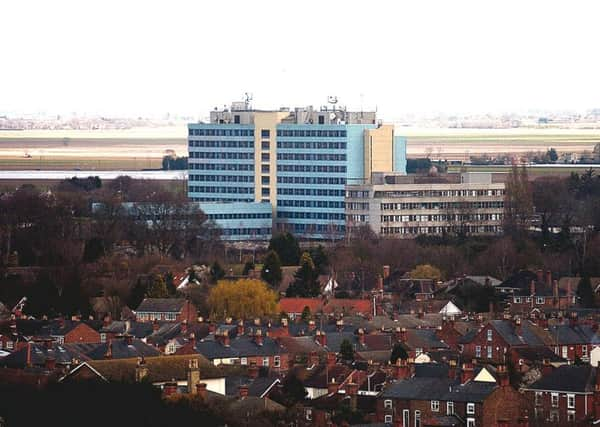BREAKING NEWS: Three wards closed at Boston’s Pilgrim Hospital due to norovirus


They say the virus is not uncommon in the winter and patients can catch the virus from people visiting the hospital or before their admission.
In a statement United Lincolnshire Hospitals Trust, which runs the Pilgrim, said: “The closure and restricted admissions to wards is a precaution to prevent further spread of the virus and the beds will reopen for admissions once the patients have been discharged and the area has been symptom free for up to 72hrs.
Advertisement
Hide AdAdvertisement
Hide Ad“The hospital remains open and whilst these restrictions are in place, patients who are currently admitted to these wards are being placed on other suitable wards across the hospital site. The situation is being closely monitored and managed on an ongoing basis.”
Hospital bosses are are asking everyone considering visiting a friend or relative in hospital to think carefully about whether they need to go if they have experienced diarrhoea, vomiting or flu-like symptoms in the past four days.
Dr Suneil Kapadia, medical director at United Lincolnshire Hospitals NHS Trust, said: “We usually see higher levels of norovirus in autumn and winter, and it’s really important to make sure that we protect vulnerable patients and hospital staff.
“These stomach germs are highly contagious and can spread rapidly anywhere that people are gathered, such as schools or offices. Hospitals are buildings with hundreds (or thousands) of visitors every day, this is why the Trust is asking people to think carefully before visiting hospitals if they or anyone in their family has even mild symptoms of stomach upset.
Advertisement
Hide AdAdvertisement
Hide Ad“We know that sometimes visitors feel that they must take every opportunity to visit sick friends or relatives, however if they themselves have been unwell, they could be putting others at risk. Symptoms of norovirus include diarrhoea and vomiting and, just like flu, the virus can seriously affect vulnerable patients.”
The Trust advises if you have norovirus, the best thing you can do is rest, and take plenty of non-caffeinated drinks to avoid dehydration.
People worried about prolonged symptoms, should contact NHS 111 or ring their GP, not visit, surgery, it says. They will be able to provide advice for people who are at greater risk from dehydration from diarrhoea and vomiting, such as children under the age of five or the elderly.